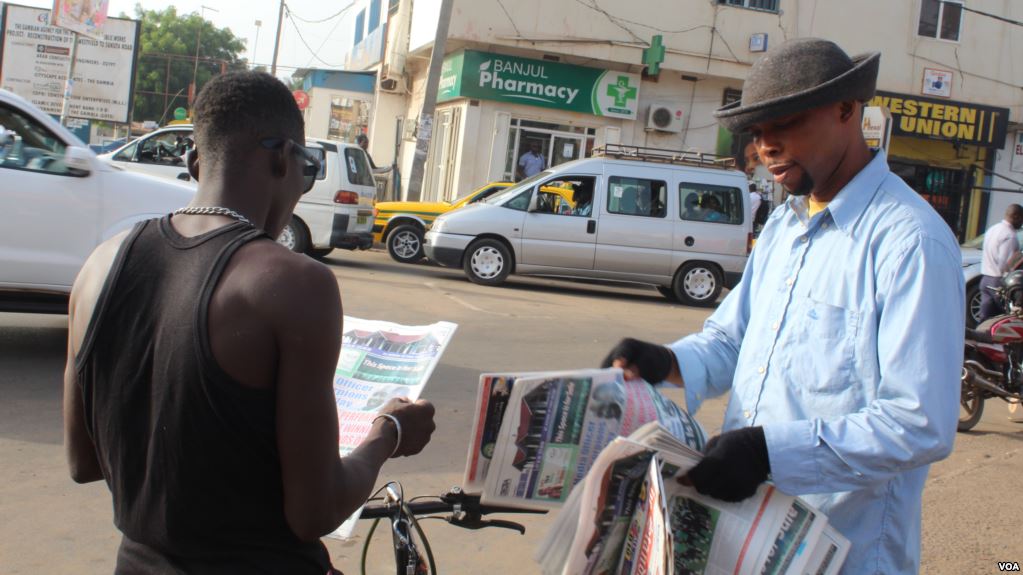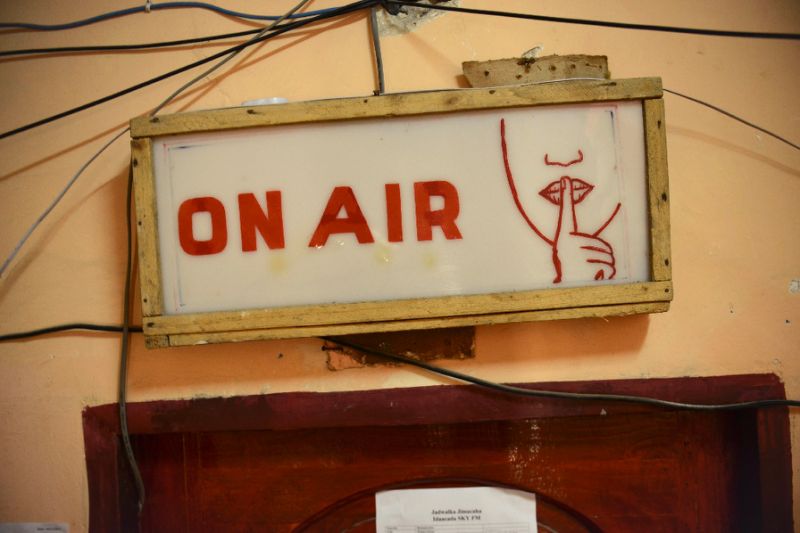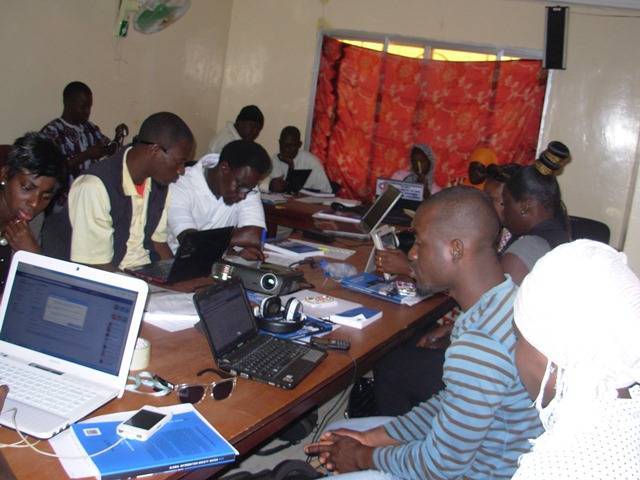
According to a report compiled by Reporters Without Borders (RSF), the Gambian media has tremendously progressed; in 2022, the World Press Freedom Index report favorably moved the Gambia in its rankings to the 50th position compared to two years ago from 80th out of 189 countries.
Amid a worldwide fight against the novel Coronavirus( COVID-19) Pandemic, Gambian journalists and the Gambian Diaspora media practitioners are joining people around the globe in commemorating World Press Freedom Day on May 3.
The Theme for this year’s 28 the World Press Freedom Day, organized by UNESCO, is “Journalism Under Digital Siege.”
At the annual commemoration, organisations and individuals celebrate basic principles of press freedom, evaluate the state of press freedom worldwide, defend the media from attacks on their independence and pay tribute to journalists who have lost their lives.
Nearly 200 years ago, Thomas Jefferson, 3rd United States President, wrote that “the only security of all is in a free press.”
His words stand today as an apt reminder of the crucial link between press freedom and democracy; during the current crisis, reporters on the front lines reinforce why journalism matters every day.
However, journalists across the globe continue to be under attack. In dozens of countries, including the United States, journalists are decried as purveyors of “fake news.” In many parts of the world, they are harassed, threatened, and jailed for indeterminate sentences.
Access to accurate and complete information is even more critical during a global health crisis that has killed thousands and left economic devastation.
Unfortunately, reporters Without Borders’ World Press Freedom Index shows that the number of countries where journalists are considered safe is declining.
During the Coronavirus pandemic, the impediments to press freedom threaten to be even greater. Many journalists are under siege amid eroding press freedoms and threats to their physical safety.
However, they are more critical than ever as the world faces a historic crisis.
Mamudu: Journalists face crises on multiple fronts, exacerbated by the COVID19 pandemic.
Reporters Without Borders released its 2022 World Press Freedom Index on April 21, noting that authoritarian governments are using the Coronavirus pandemic to implement “shock doctrine” measures that would be impossible in regular times.
The COVID-19 epidemic has exposed the long-term risks of suppressing press freedoms. As the death toll mounts amidst an economic crisis of unprecedented proportions, promoting transparent reporting is a global necessity.
However, several countries stand accused of acting too late in warning the world about the timing and extent of the threat.
2022, the Gambia has progressed significantly in its rankings in the World Press Freedom Index compiled by Reporters without Borders; the Gambia is 50th position out of 189 countries compared to The Gambia’s ranking of 87th out of 189 countries surveyed in the 2020 World Press Freedom Index compiled by Reporters Without Borders (RSF).

In 2019, the country was ranked 92nd position out of 180 countries. According to the Reporters Without Borders Global Index, “The Gambia has continued to progress despite some notable press freedom violations since 2019,” the RSF said.
For example, the Gambia had not registered any death of a journalist, jailing and beating of journalists, arson on media houses, or the exile of journalists or media assistants by state security agencies.
However, RSF said that “the old habits from 22 years of terror and suppression of press freedom under Yahya Jammeh have entirely disappeared.
Freedom of the press is a prerequisite for any flourishing democracy. The free flow of information and access to uncensored material serves as a check against censorship by the government.
By nurturing and protecting this fundamental right, free peoples achieve democratic improvements in their societies.
Unfortunately, some governments continue to violate press freedom all around the world. In these nations, journalists, bloggers, and non-violent critics have been imprisoned and even murdered while attempting to report the truth.
It should be clear to all politicians that no government, whatever its pretensions or accomplishments, can claim respect if its citizens are not allowed to say what they believe or denied the right to learn about events and decisions that affect their lives.
A country without a free and independent press is nothing to brag about, has nothing to teach, and has no way to fulfill its potential.
According to Freedom House, press freedom declined to its lowest point in the last 12 years in 2017. Only 13 percent of the world’s population enjoys a free press, while 46 percent live in “Not Free” press environments.
The Gambia remains among the most repressive in the world under Yahya Jammeh, falling into the “Worst of the Worst.” North Korea ranks number one for most repressive press freedom conditions.
The World Press Freedom Index 2017 is out, and it is not pretty for new Gambia’s record. However, Yahya Jammeh’s legacy is to be blamed.

The Gambia slipped to 148 out of 180 countries in the 2017 World Press Freedom Index by media watchdog Reporters Without Borders — placing it in the same category as nations such as Myanmar, Turkey, Ethiopia, Zimbabwe, Palestine, the Philippines, and South Sudan.
The Gambia government must urgently increase efforts towards creating the necessary media reforms and conditions for promoting the pluralistic media in The Gambia.
Press freedom has never been as threatened as “highly toxic” media-bashing Yahya Jammeh’s 22 years of rule.
Therefore, the government must act to secure press freedom by repealing draconian press laws that are inimical to press freedom and end the public demonization of critical journalists.
RSF urged The Gambia government to overhaul draconian legislation that violates press freedom. “In May 2018, the supreme court ruled that the criminalisation of defamation was unconstitutional but, despite the good intentions expressed by Barrow, the long-awaited overhaul of legislation that violates press freedom has yet to materialize.”
At number 23, Namibia is the highest-ranked African country on the list, which features Nordic regions Norway, Finland, and Denmark in the top three spots, respectively.
The World Press Freedom Index illustrates the oppression of journalists from North to South, and a pandemic in its own right seems to have instigated. Even the president of the world’s most powerful democracy has described the press as “the enemy of the people.”
However, ultimately, the freedom of the media can only be guaranteed by a coordinated global effort, public awareness, and a focus on the long-term advantages of a more critical world.
This year’s World Press Freedom Day aims to do just that under the Theme of “Journalism Without Fear or Favour.” It calls for awareness on specific issues about the safety of journalists, their independence from political or commercial influence, and gender equality in all aspects of the media. In the words of Albert Camus, “…without freedom, the press will never be anything but bad.”
On World Press Freedom Day on May 3, the UN Special Rapporteur on Freedom of Expression, David Kaye, calls on gov’t to ensure the independence of journalism, saying reporters must be allowed to work without fear or favor – particularly during the COVID-19 crisis.
By Alagi Yorro Jallow











Recent Comments